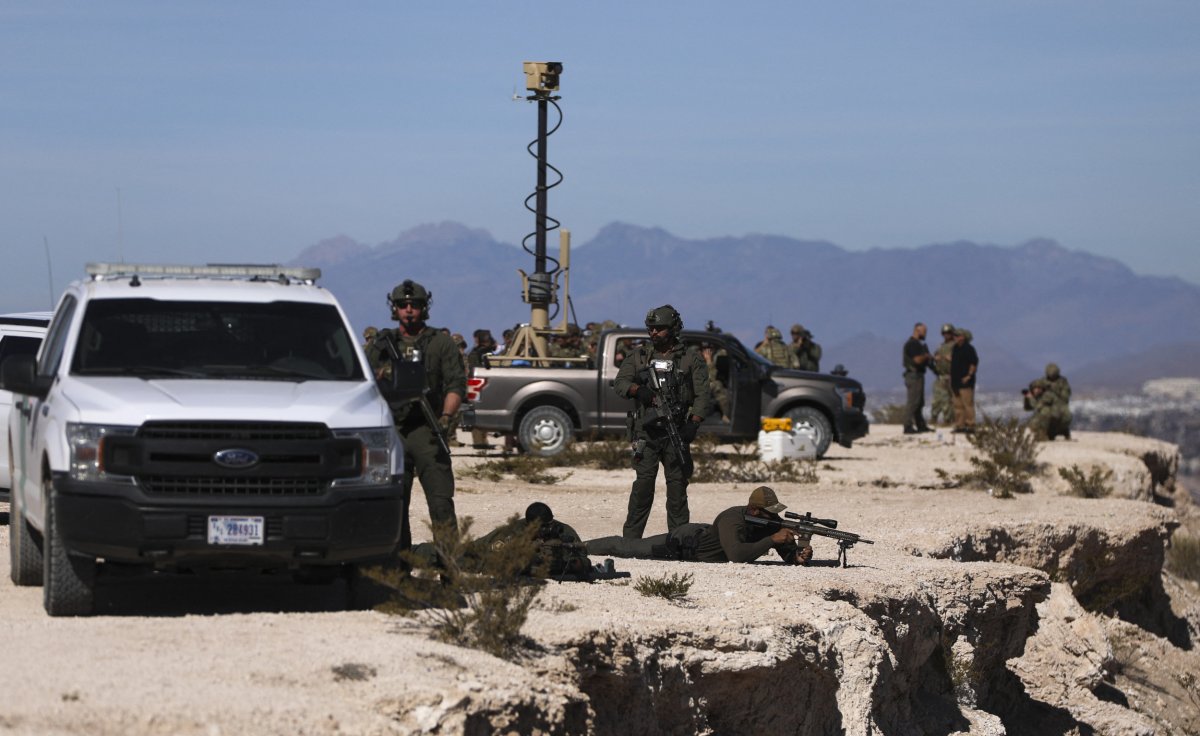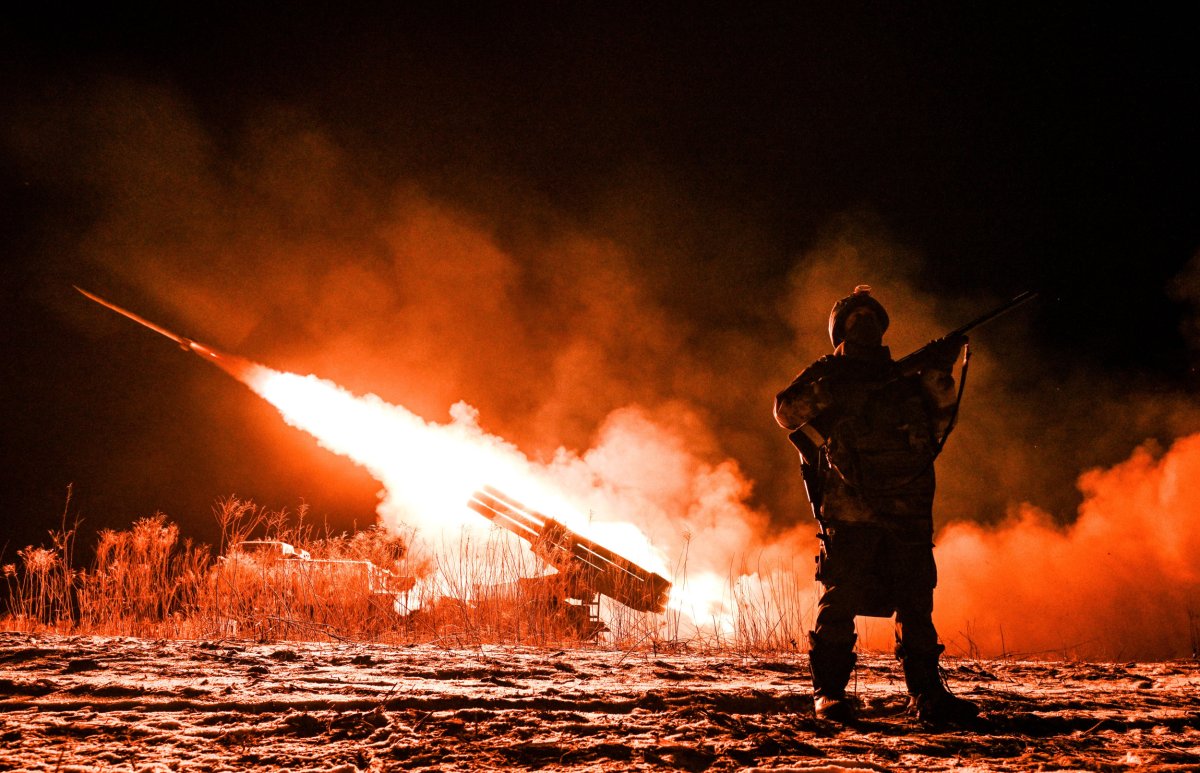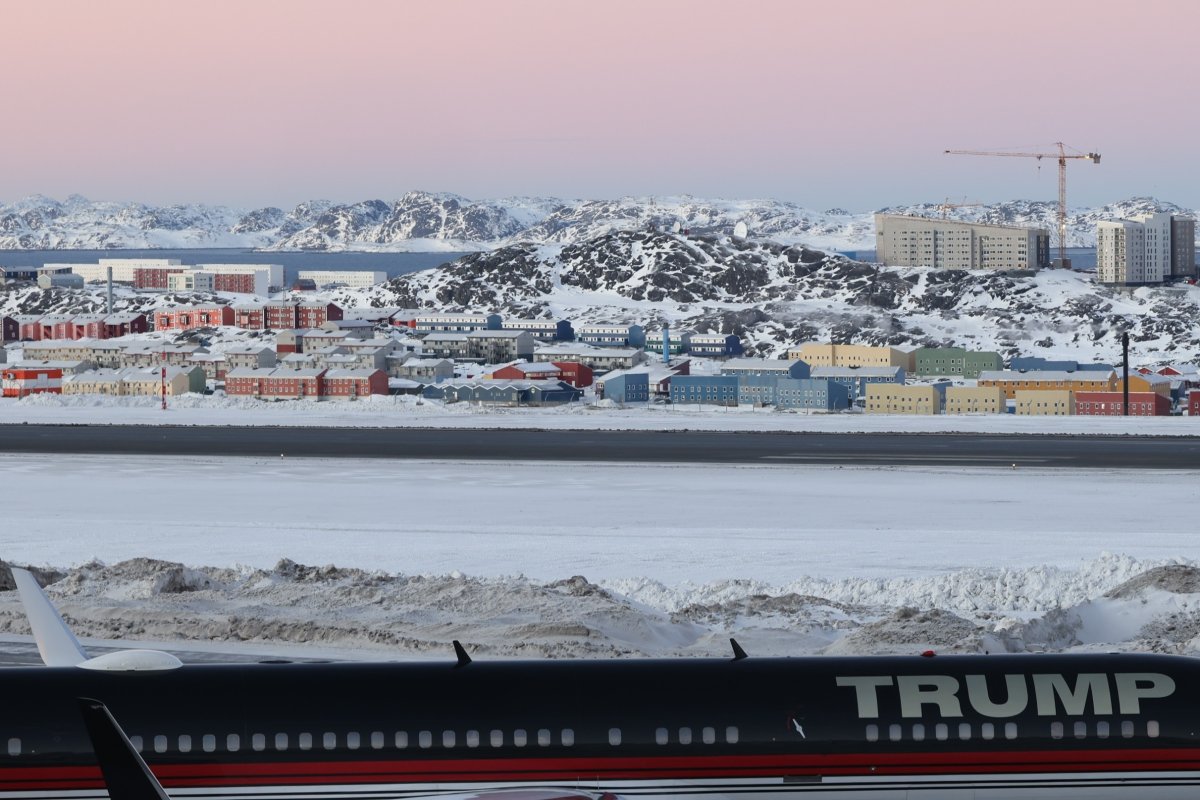Speaking in the crowded rotunda of the U.S. Capitol Building that his supporters stormed just four years earlier in an effort to return him to power, President Donald Trump appeared to declare war on all that came before.
His fiery second inaugural address on January 20 was far from ahistorical, however. Rather, it channeled the native instincts of a geographically isolated superpower now looking to renegotiate its global hegemony and secure its position closer to home.
Trump’s ambitious plans to usher in a new era of peace, power and prosperity include rolling back involvement in foreign conflicts while asserting influence in the Western Hemisphere, where he seeks to renegotiate relationships with Canada and Mexico and stake claims to Greenland and the Panama Canal.
In doing so, the president proposes a return to a foreign policy outlook more familiar to the nation upon its foundation in rebellion against an overextended British Empire nearly 250 years ago and departed from only over the past century, notably in the decisions to intervene in World War I and World War II.
Today, as the world teeters on the brink of another global conflict, with war raging in Europe and tensions rising rampant across Asia, from the Middle East to the Indo-Pacific, most consequential of all may be Trump’s dealings with two men considered to be the top challengers to U.S. global dominance. Trump intends to bargain directly with Chinese President Xi Jinping and Russian President Vladimir Putin in order to recalibrate the U.S. role in a decaying world order, carve out spheres of influence and enforce his signature “peace through strength” doctrine.
This doctrine, according to Alexander Gray, who previously served as Trump’s deputy assistant and National Security Council chief of staff, entails “using maximum national power to create deterrence and leveraging American strength to facilitate negotiations [always from a position of advantage] to enhance U.S. core interests.”
“The lessons of pre-1914 geopolitics are many,” Gray, now a senior fellow at the American Foreign Policy Council think tank in Washington, D.C., told Newsweek, “but they include the importance of open communication among great powers to avoid misunderstandings about intentions, as capabilities can be misconstrued; the need to avoid entangling alliances that no longer serve core national interests; and the importance of concentrating military resources on the key theaters of potential conflict, for deterrence purposes, rather than spreading scarce resources too broadly [in the case of the U.K.].”
“All of these have lessons for today,” Gray said. “The president can ensure peace, as he did in his first term, by rebuilding U.S. defense capabilities and talking directly to our adversaries from a position of strength.”
Photo-illustration by Newsweek/Getty
‘Better to Be Feared Than Loved’
As with much of Trump’s iconoclastic tendencies, his radical restructuring of U.S. foreign policy has proved divisive. Those who advocate for the necessity of Washington’s role as omnipotent sentinel of liberal values abroad regard the administration’s ongoing exposé of USAID and its questioning of open-ended military assistance to Ukraine as particularly profane.
But the approach garners support from a substantial segment of constituents. Among them are those who seek to redirect the proximity of U.S. policy focus back to its roots.
“Donald Trump is in many respects a throwback to an earlier era of U.S. foreign policy, which the United States pursued for much of its history until World War II,” Stewart Patrick, director of the Washington-based Carnegie Endowment for International Peace’s Global Order and Institutions Program, told Newsweek. “This is a nationalist, sovereigntist and hemispherically focused policy that abdicates any pretense to global leadership or any sense of responsibility for underwriting international order or defending international law.”
Patrick called it “a reversion to traditional great power politics, accompanied by a claim to treat the Americas as an exclusive preserve in which the United States should enjoy a free hand.”
Such a shift raises concerns for regional leaders, who had largely accepted a nearby superpower that predominantly exerted its might elsewhere across the globe. All the while, however, Beijing and Moscow have pursued inroads into the Western Hemisphere, with China establishing unprecedented levels of diplomatic and economic engagement and Russia seeking to revive and revamp Cold War-era partnerships as a counterbalance to NATO expansion in Europe.
To combat this, Trump, whom Patrick said “seems more comfortable with the notion that great powers, including Russia and China, can be entitled to spheres of influence in their immediate regions,” has signaled a willingness to deconflict with Xi and Putin within their respective neighborhoods.
“Trump is less preoccupied than previous administrations about ensuring that the Eurasian land mass is not dominated by an adversarial power,” Patrick said, “and to the degree that Europe is threatened by Russia, he believes that is Europe’s problem and that Americans should stop being played by the Europeans as ‘suckers,’ in his view.”
When it comes to China, the rising power universally considered in Washington to be the top contender for global leadership, Patrick describes the president’s playbook as “a little bit more complicated, since Trump does appear to have more animus towards that country.” Still, he argued, Trump “seems more comfortable with the notion that great powers, including Russia and China, can be entitled to spheres of influence in their immediate regions.”
In his first call with Xi, Trump hailed his expectation that the two “will solve many problems together” and “do everything possible to make the world more peaceful and safe.” Trump also told the New York Post he had recently spoken with Putin, touting his “good relationship” with the Russian leader with whom he intends to settle the war in Ukraine on terms previously rejected by European allies.
Rather than promoting concepts of global leadership, democracy or human rights, Trump “is skeptical that the United States should try to stand for anything other than its own national interests, and he defines these very narrowly,” Patrick argued. “He believes that it is better to be feared than loved.”
Newsweek has reached out to the White House for comment.

Herika Martinez/AFP/Getty Images
‘A Collapse of the System’
In abandoning the crusade of exporting U.S. values abroad, an endeavor pursued by past administrations through soft power initiatives and military interventions, Trump’s evocation of Manifest Destiny verges on irredentism. Such concepts seemingly meld well with the worldviews of Beijing and Moscow, both of which seek to reclaim territories that have fallen under the realm of U.S. protection.
In an article shared with Newsweek by the Russian Embassy to the U.S., former Russian President and current Security Council Deputy Chair Dmitry Medvedev drew parallels between the Chinese and Russian desires to retake and reintegrate claimed lands.
“Should the so-called Ukraine persist in its aggressive Russophobic trajectory, it risks disappearing from the world map forever, much like the puppet state of Manchukuo—artificially created by militaristic Japan as a proxy power in China—once did,” Medvedev wrote, asserting that “Russians and Ukrainians are one people.”
Medvedev, the only man to share leadership of Russia with Putin over the past quarter-century, warned against Western designs of denying Beijing’s claim to Taiwan and Moscow’s claim to Ukraine.
“In contemporary times, the incitement of inter-ethnic or inter-racial hostility manifests in the construction of a national pseudo-identity for an ethnic group, aiming to sever it from the state-forming populace,” Medvedev wrote. “This is precisely what Washington and its allies attempt with Russia, China, and many other nations. Taiwan is an organic and integral part of the Chinese national domain, an administrative unit of the People’s Republic of China. Efforts to fabricate Taiwanese statehood, nationality, or language—instigated from across the ocean—are artificial and, consequently, unsustainable.”
But the costly effort to simultaneously challenge an array of adversaries on their frontlines has placed the U.S. in a precarious position.
Ivan Timofeev, director general of the Russian International Affairs Council, argued that “Washington finds itself in an uneasy situation when it has to contain both China and Russia, to deal with smaller but still hostile Iran and DPRK and to pay for the security of its allies both in Europe and in Asia.” Therefore, Timofeev viewed Trump’s shake-up as “reasonable and even inevitable.”
When it comes to the deadliest conflict to strike Europe since World War II, the Kremlin is also looking to revamp the regional security architecture and believes it is an advantageous position to do so.
“[Trump] is very limited in terms of power politics vis-à-vis Russia, for Moscow is already acting in hostile environment and got used to it. He may, however, sacrifice Ukrainian tactical interests,” Timofeev said. “Paradoxically, Ukraine itself may finally gain from these attempts—it will avoid further losses and will survive as a nation state. Still, Moscow will not buy just a ceasefire. It will demand legal obligations and solid international agreements on a new status quo.”
But just as Trump’s stark foreign policy pivot has ruffled a long-standing consensus in Washington, his signature unpredictability also evokes consternation in Moscow and Beijing.
“I think what President Trump and his team said about foreign policy really echoes with the foreign policy of 100 years ago, which is very much inconsistent with the norms and rules that all the countries accepted after the WWII,” Da Wei, director of Tsinghua University’s Center for International Security and Strategy in Beijing, told Newsweek. “I think remarks related to Panama, Greenland, along with other America First foreign policy, leads to the end of so-called ‘rules-based international order.'”
This order, as Da explained, “is not just an order with rules, it’s an order led and maintained by the U.S. as the hegemony, with liberalism as its philosophical bases, and materialized to a great extent by the international institutions founded after the WWII and expanded after the end of the Cold War.”
“So, the problem is not only violating or threatening to cross the line of international law,” he said, “it’s a collapse of the system.”
On working with Trump, Da said that “China is willing to provide some help, and can be helpful,” though he was uncertain how Beijing and Washington would be able to reach more comprehensive understandings.
“Geopolitics is something very difficult to make a deal in a condition short of war,” Da said. “Even if the U.S. [or China] agree to let the other side do something geopolitically, it’s still because the related parties have their own agency. I think the deal would be more like on a limited issue, for instance, a deal to stabilize the relationship, or a deal on economic issues.”

Sputnik/AP
‘Trump Defies Easy Classification’
For all its national fervor, Trump’s harkening to century-old U.S. geopolitics has elicited a great deal of domestic skepticism as well.
Adam Hochschild, a historian and lecturer at the University of California, Berkeley, argued that Xi and Putin “would love to make some sort of implicit or explicit deal whereby they can acquire or dominate Taiwan and Ukraine, respectively.”
“Trump, of course, has parallel imperial ambitions for territory close to him: Greenland and Panama,” he told Newsweek. “Might they make a deal where each of the three helps himself to what he wants? Possible, but hard to predict. Most of Europe will certainly protest fiercely when it comes to the swallowing up of Greenland, and, especially, Ukraine.”
In the quest to find a historical analogy for Trump’s vision, some have compared him to former U.S. President Woodrow Wilson, who also once faced a devastating pandemic, pursued harsh anti-immigration policies and sought to silence critics at a time of worsening global strife.
“At the same time, Wilson was very different from Trump in that he was an internationalist, passionately devoted to the idea of the League of Nations, with the United States as a key participant,” Hochschild said, recalling how the former president sacrificed his ailing health to pursue an exhausting nationwide campaign in support of the U.N. predecessor. “Whatever Wilson’s other flaws, he was deeply idealistic on this score, something Trump in no way shares.”
Trump has been compared to many other past U.S. leaders as well. They include fellow celebrity-turned-commander-in-chief Ronald Reagan and William McKinley, who also introduced protectionist tariffs and was the last president to explicitly discuss territorial expansion upon taking office at the end of the 19th century.
The truth is likely more enigmatic, according to Rajan Menon, a senior research scholar at the Saltzman Institute of War and Peace Studies and professor at City College of New York. He told Newsweek that “Trump defies easy classification: he’s certainly not a liberal internationalist or neoconservative, but nor is he an isolationist.”
“He’s wedded to reducing American security commitments in Europe, but he’s not about to dismantle NATO, the leadership of which ensures Europe’s dependence on the United States,” Menon said. “He’ll avoid humanitarian intervention or nation-building campaigns like Libya 2011 and Iraq 2003, respectively, but may end up in a war with Iran, especially if there is a confrontation between Israel and Iran. And that war could turn into a regime-change operation.”
“Trump is likely to focus even more than his predecessors did on containing China, yet he understands that a war with China would prove catastrophic [for both sides],” Menon added. “He despises foreign aid and human rights programs but will ramp up arms sales. Though Trump in some respects is a militarist, he’s leery of war.”
While far from dovish, Trump’s remarks on China and Iran, two favored targets of Republican war hawks, have thus far broken the contemporary conservative mold and have instead largely appealed to diplomacy, as he has with Russia.
The former real estate mogul has proposed expelling Palestinians in favor of a long-term U.S. presence to redevelop the Gaza Strip into a Middle Eastern “riviera,” while seeking a deal that would allow Iran to “peacefully grow and prosper.” He’s also threatened tariffs on Taiwan and China at a time when he also sought to strike a trade deal with Beijing.
“Trump won’t contest Russia’s effort to keep the other states that emerged following the collapse of the Soviet Union within its sphere of influence, which is bad news for Ukraine,” Menon said. “But he won’t give China that kind of latitude in East Asia, though I’m not convinced he’d fight China to defend Taiwan. Trump is hardly averse to power politics, but he’s also mindful of risks: He knows that it’s one thing to threaten Denmark and quite another to threaten China.”

Emil Stach/Ritzau Scanpix/AP
A ‘More Multipolar’ World
Tantalizing as it may appear for Xi and Putin to seize upon this moment, both leaders understand Trump ostensibly has just four years to turn back the tide of a geopolitical machine long geared toward bolstering undisputed U.S. leadership around the world. This timeline could also impact their calculus.
“President Trump’s penchant for highly personalistic diplomacy and his seeming amenability to an international order that revolves around spheres of influence have led some observers to ask whether he could achieve a reset of U.S. relations with Russia and/or China,” Ali Wyne, senior research and advocacy adviser at the Brussels-based Crisis Group, told Newsweek.
“There is little reason to believe, however, that either country sees his ‘America First’ foreign policy as the new normal for the United States,” he said. “Instead, each likely discerns at most a brief window of opportunity to secure tactical concessions from a transactional U.S. leader.”
Yet, for all of its fixation on American might, Trump’s turn to the Western Hemisphere reflects a realization of a world order that continues to diversify independently of Washington’s whims. Rising middle powers such as India, Saudi Arabia and Turkey have increasingly hedged their bets in an increasingly competitive international playing field.
“While President Trump is pursuing a more aggressive foreign policy in the Western Hemisphere—a new ‘manifest destiny,’ to quote from his inaugural address—he is doing so within what appears to be a post-primacist conception of international relations,” Wyne said. “It is telling that many top officials in his administration, including Vice President Vance and Secretary of State Rubio, assess the world to be growing more multipolar.”
In his own words, Vance, eyed as potential heir to Trump’s populist MAGA movement, said during his interview with Face the Nation, that “we need to address the challenges in our own backyard before getting entangled in distant conflicts.”
For Gray, the former White House official, “President Trump’s increased focus on the Western Hemisphere is both long overdue and in keeping with U.S. strategic traditions.”
“Since 1945, but more especially since 1991, the U.S. has treated the hemisphere as worse than an afterthought,” Gray said. “President Trump’s 2017 National Security Strategy makes clear that great power competition is the organizing principle of U.S. national security policy—and adversaries like China, Russia and Iran have become deeply enmeshed in the hemisphere in America’s absence.”
“The president’s focus on the hemisphere, to include issues of border security and migration, as well as his broader definition of hemispheric interests to include Greenland and the Arctic,” he said, “is a welcome change from decades of U.S. distraction in ancillary theaters.”





